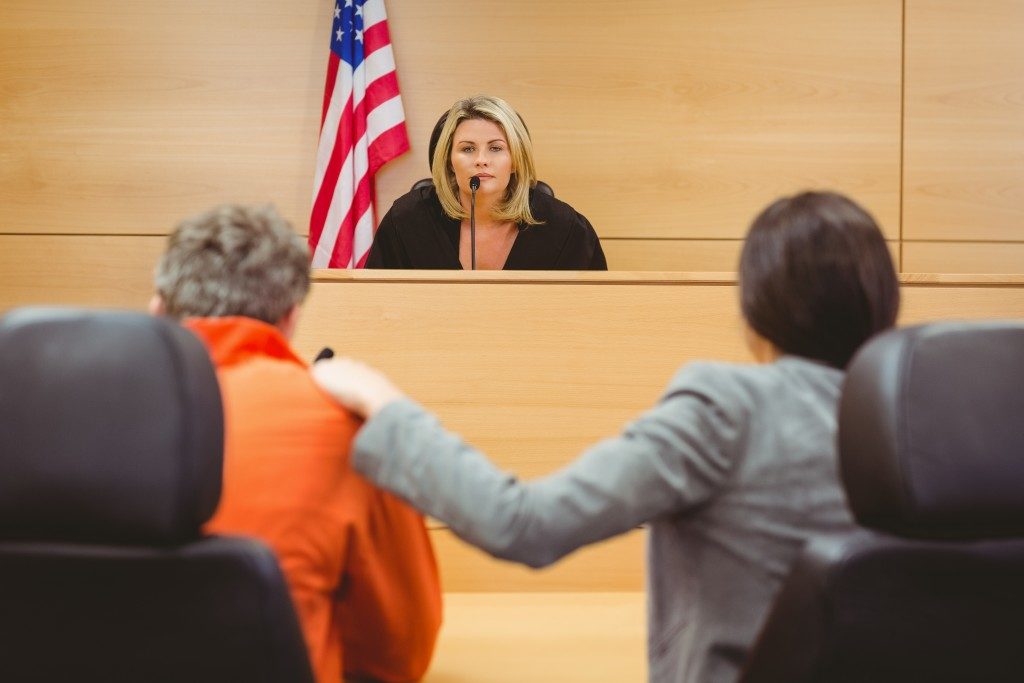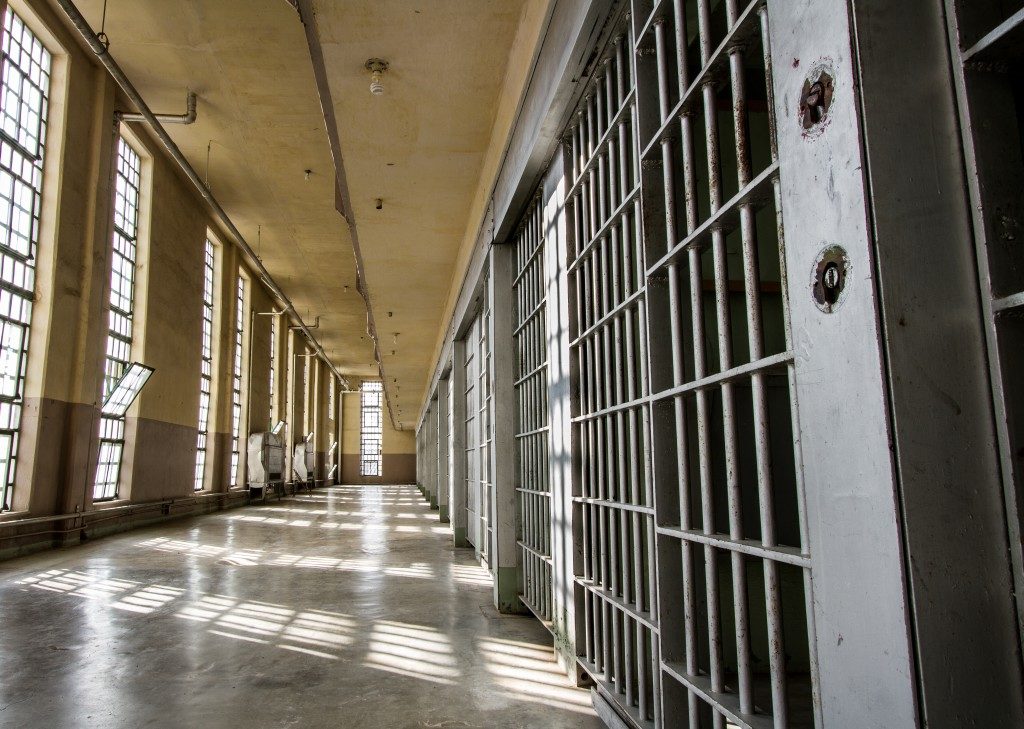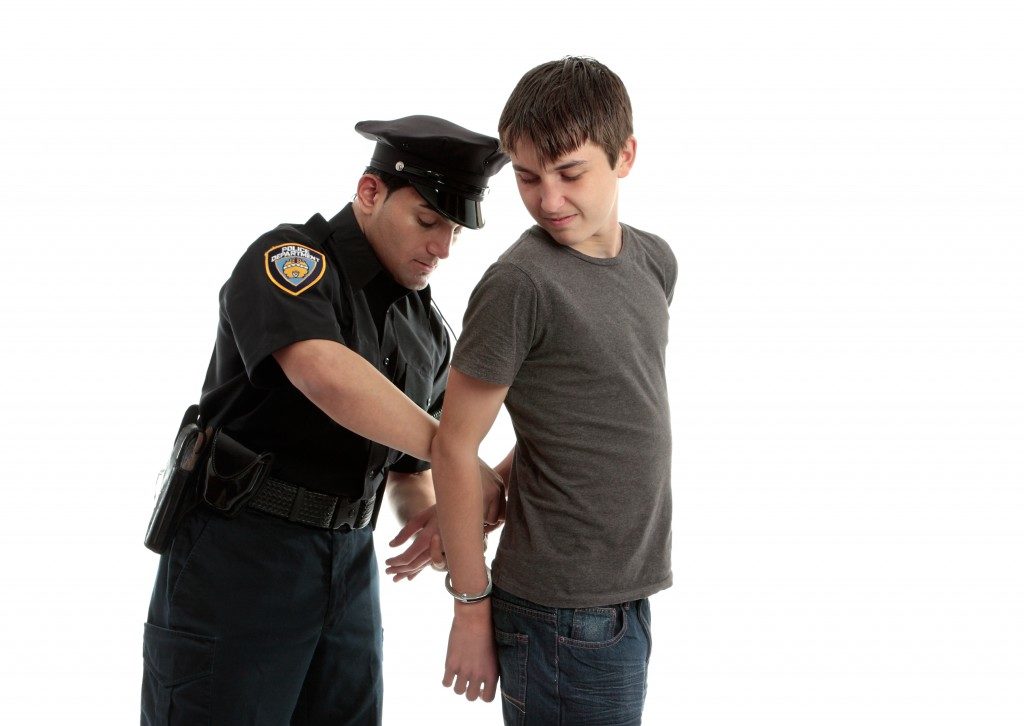Discretion in the criminal justice system refers to the flexibility and authority granted to law enforcement officers, attorneys, judges, and other key players, allowing them to make decisions based on individual circumstances rather than adhering strictly to the letter of the law. This element of discretion is integral to the functioning of the criminal justice system, providing room for the consideration of unique factors in each case and enabling a more personalized, human approach to justice. Statistics show that discretion plays a major role in the criminal justice process, with almost every decision made by those involved being influenced by some level of discretion.
As you delve deeper into this topic, this article will explore the role of discretion at various stages of criminal proceedings, evaluate its advantages and potential for misuse, and examine statistical evidence reflecting the impact of discretion on crime rates and sentencing outcomes. Read on to better understand the concept of discretion in criminal justice and its implications on society.
What is Discretion in Criminal Justice?
Discretion in the context of the criminal justice system can be defined as the power or right conferred upon certain officials, such as police officers, prosecutors, and judges, to act or make decisions based on their own judgment within the confines of the law. This authority allows these officials to consider the unique circumstances of each case, including the offender’s background, the nature of the crime, and societal impacts. The use of discretion, however, is not unfettered and is subject to checks and balances to prevent misuse. It is a critical aspect of the criminal justice system that influences decisions from routine police stops to sentencing in a court of law.
Decision Points in the Criminal Justice Process
Discretion is applied at various stages throughout the criminal justice process, each with its unique set of considerations:
- Law Enforcement: Police officers exercise discretion in numerous ways, such as deciding whether to stop or arrest someone, whether to conduct a search, and whether to issue a warning or a ticket. They may also choose how to handle situations involving mentally ill individuals or minors.
- Prosecution: Prosecutors wield significant discretion in deciding whether to charge a person with a crime, what charges to file, and whether to offer a plea bargain. They often consider factors like the evidence’s strength, the crime’s seriousness, and the defendant’s prior criminal history.
- Judiciary: Judges have discretion in decisions related to bail, evidentiary rulings at trial, sentencing, and granting probation or parole. The judge’s discretion in sentencing can be particularly powerful, impacting the length and type of sentence imposed.
- Corrections: Correctional officials use discretion when determining the level of security in which an offender is placed, decisions about parole, and recommendations for rehabilitative programs.
Each decision point reflects the degree of discretion in the criminal justice system. Although discretion is necessary for flexibility and individualized justice, it also introduces the potential for inconsistency and bias, making the proper oversight and regulation of its use crucial.
Key Actors Exercising Discretion in the Criminal Justice System
In the criminal justice system, several key actors possess and exercise significant discretion, which directly influences the outcomes of cases:
- Police Officers: As the initial point of contact between the public and the criminal justice system, police officers exercise substantial discretion. They determine whether to stop or arrest someone, conduct a search, or issue a warning or a ticket based on their situation assessment.
- Prosecutors: Prosecutors have broad discretionary powers, with the authority to decide whether to charge a person with a crime, what charges to file, and whether to offer a plea bargain.Factors considered include evidence strength, crime seriousness, and defendant’s prior criminal history.
- Judges: The judiciary exercises discretion in determining bail amounts, making evidentiary rulings during trial, sentencing offenders, and granting probation or parole. The effect of a judge’s discretion can significantly alter the length and type of sentence an offender receives.
- Correctional Officials: Those involved in corrections, such as prison wardens and parole officers, also exercise discretion. They make decisions regarding prisoners’ security levels, parole eligibility, and participation in rehabilitative programs.
Each of these key actors plays a significant role in applying discretion within the criminal justice system. The use of discretion allows these individuals to respond to the unique circumstances of each case but also underscores the need for regulatory measures to prevent potential misuse or bias.
Sources of Discretion in the Criminal Justice System
There are several sources from which discretion in the criminal justice system stems:
- Laws: Laws themselves often contain elements of discretion. They may set guidelines or parameters within which decisions must be made. Still, it’s up to the actors in the criminal justice system to interpret and apply these laws in specific cases.
- Policies: Various policies also grant discretion. For instance, police departments may have policies that guide when and how officers should engage in certain actions, like pursuing a suspect or using force. These policies usually provide some latitude for officers to adapt their actions based on their circumstances.
- Individual Judgment: Perhaps the most apparent source of discretion is the individual judgment of the actors in the criminal justice system. Police officers, prosecutors, judges, and correctional officials make choices based on their experiences, biases, ethics, and understanding of the law. This can lead to significant variations in how discretion is exercised.
These sources underline the pervasiveness of discretion in the criminal justice system. While they enable flexibility and adaptation to individual cases, they also raise important questions about consistency and fairness, providing further impetus for the careful scrutiny and regulation of discretionary powers.
How Does Discretion in Criminal Justice Work?
As mentioned earlier, discretion is applied at various stages of the criminal justice process. After a suspect has been arrested and charged with a crime, they may find themselves facing the following decision points where discretion plays a crucial role:
Police Discretion
The power of discretion in law enforcement is substantial, affecting decisions on several key aspects of law enforcement, including arrests, searches and seizures, and charging.
Arrests: Regarding arrests, police officers have to make judgment calls based on the circumstances. Not every violation of the law necessarily leads to an arrest. Officers use their discretion to decide whether an arrest is the most appropriate course of action, considering factors like the seriousness of the crime, the suspect’s demeanor or cooperation, the presence of witnesses, and public safety. For one, the police can arrest a community member if they receive an obstruction of justice charge that must be addressed.
Search and Seizure: Law enforcement officers also have discretion in their decisions to search persons, belongings, or premises. While the Fourth Amendment protects against unreasonable searches and seizures, officers can use their discretion to conduct searches in scenarios where they have probable cause or where they obtain consent or a search warrant. Considering its relevance to the case, the decision to seize property as evidence also lies within an officer’s discretion. For example, an investigation for justice may require collecting drug paraphernalia as evidence.
Charging: Even after an arrest, officers have discretion in deciding which charges, if any, to file against a suspect. They might consider factors like available evidence, the likelihood of conviction, resource constraints, and the suspect’s criminal history. This decision often involves consultation with a prosecutor.
However, it’s important to note that while police discretion is vital for effective law enforcement, it is not unlimited. Officers are expected to exercise their discretion within the boundaries of the law, departmental policies, and ethical guidelines. Their decisions are subject to review and can be challenged in court if they are found to violate individuals’ rights or the principles of justice.
Prosecutorial Discretion
Prosecutors are pivotal figures in the criminal justice system, possessing significant discretion in determining the trajectory of criminal cases. Their choices can profoundly affect the lives of those involved and the overall pursuit of justice.
Determining Charges: Prosecutors effectively decide who will be prosecuted and for what crimes. Upon receiving a case from law enforcement, they review the evidence and decide whether to bring charges and, if so, what those charges should be. This decision is typically influenced by factors such as the available evidence, the severity of the offense, the suspect’s criminal background, and the potential for successful prosecution.
Plea Bargains: Prosecutors also have the authority to negotiate plea bargains. This involves offering the defendant a deal where they agree to plead guilty to a lesser charge or to one of multiple charges in return for a lighter sentence. Plea bargains can expedite the criminal justice process, reduce court workload, and ensure a certain punishment for the defendant. However, the decision to offer a plea deal and the terms thereof are contingent on the prosecutor’s discretion, leading to potential disparities and questions of fairness.
Trial Decisions: During a trial, prosecutors have the discretion to make vital decisions that can shape the outcome. They control the presentation of evidence, select which witnesses to call, and decide how to argue the case. While these decisions must be made within the boundaries of law and professional ethics, they nevertheless demonstrate prosecutors’ wide-ranging discretion. Both restorative and retributive justice can come into play when the court makes its final decision.
The exercise of prosecutorial discretion can result in diverse outcomes, reflecting the complexities of individual cases. However, this power also requires careful monitoring and accountability to ensure it serves the interests of justice and public safety.
Judicial Discretion
Judges also exercise a substantial amount of discretion in the criminal justice system. At various stages of a case, they make decisions that can significantly impact the trajectory of proceedings and the outcome for defendants. Here are some areas in which judges typically exercise their discretionary power:
Bail Decisions: After an arrest, a judge determines whether to release the defendant on bail prior to trial and, if so, sets the bail amount. In making this decision, judges must balance the defendant’s right to freedom before conviction and the need to ensure court appearance and protect public safety. Key considerations might include the seriousness of the alleged offense, the defendant’s previous criminal record, flight risk, and ties to the community.
Evidentiary Rulings: Judges have discretion in rulings on the admissibility of evidence during a trial. They must weigh the probative value of the evidence against potential prejudicial impact. These rulings can significantly influence the direction and outcome of a trial.
Sentencing: Perhaps the most impactful area of judicial discretion is sentencing. Once a defendant has been convicted, the judge determines the appropriate sentence within the parameters set by law. Judges can consider various factors, including the nature and severity of the crime, the defendant’s criminal history, the impact on the victim, and the defendant’s remorse or potential for rehabilitation. Some jurisdictions provide sentencing guidelines, but judges often have leeway to deviate from these based on the case’s specifics.
These roles demonstrate the profound influence of judicial discretion on the administration of justice. While this discretion allows for individualized justice, it also underscores the need for oversight and consistency to prevent arbitrary or biased decision-making. As such, judicial discretion must always be exercised with fairness, impartiality, and a deep respect for the rule of law.
Parole and Probation Discretion
Discretion also plays a critical role in the release and supervision of offenders, specifically in parole and probation decisions.
Parole Decisions: Parole boards, composed of appointed officials, are responsible for deciding whether an incarcerated individual should be granted conditional release before the end of their sentence. The board exercises discretion by considering factors such as the nature of the crime, the offender’s behavior in prison, their rehabilitation progress, and the potential risk to public safety. While they operate within statutory guidelines, parole boards have considerable leeway in determining if and when an inmate is ready for reintegration into society.
Probation Decisions: Probation officers, on the other hand, supervise offenders who are granted probation, which is a period of supervised living in the community instead of incarceration. The discretion here involves determining the level of supervision required and making decisions about violation reports if probation rules are broken. Probation officers can recommend the continuation of probation, adjustment of conditions, or revocation of probation leading to incarceration. They base these decisions on factors such as the offender’s compliance with probation conditions, their progress toward rehabilitation, and the risk they pose to the community.
In both parole and probation, discretion is essential to balance the goal of rehabilitating offenders and protecting public safety. However, as with other areas of the criminal justice system, this discretion must be exercised judiciously to ensure fairness, accountability, and consistency.
Consequences of Discretionary Decisions in the Criminal Justice System
The use of discretion within the criminal justice system, while necessary, has significant consequences that can profoundly influence individuals’ lives and communities. It can lead to disparities and inconsistencies in legal outcomes, with particular implications for marginalized communities.
Sentencing Disparities
Discretion in sentencing, particularly, can result in unequal punishments for similar offenses. Judges, using their personal judgment, may impose divergent sentences based on their perception of the crime, the offender, or the impact on the victim. This can lead to a situation where two individuals convicted of the same crime receive disparate sentences.
Moreover, sentencing disparities can be exacerbated by systemic biases. Research suggests that racial and ethnic minorities often receive harsher sentences than their white counterparts for similar crimes. This reflects a concerning bias in exercising discretion that contributes to overrepresenting certain groups in the prison population.
Impact on Marginalized Communities
The discretionary decisions taken at various stages of the criminal justice process can disproportionately impact marginalized communities. For example, law enforcement discretion in arrests and stops can lead to racial profiling, with people of color disproportionately targeted compared to white individuals.
Similarly, prosecutorial discretion in charging and plea bargaining can contribute to disparities in case outcomes. Studies have shown that marginalized groups are less likely to receive favorable plea deals, leading to more severe charges and longer sentences.
Furthermore, the discretion exercised by parole boards and probation officers can impact reentry outcomes. Bias in these decisions can lead to stricter conditions or premature termination of parole or probation for minority offenders, limiting their opportunities for successful reintegration into society.
These consequences underscore the importance of monitoring and regulating discretion within the criminal justice system. While discretion allows for flexibility and individualized justice, it must be tempered by fairness, equality, and non-discrimination principles to ensure a truly just legal system.
Bottom Line
Discretion is a crucial aspect of the criminal justice system, with far-reaching effects on the lives of those involved. From law enforcement and prosecutorial decisions to judicial and parole/probation discretion, officials are granted significant leeway in making choices that can determine an individual’s fate. While this discretion allows for a tailored approach to justice, it must be exercised with caution and accountability to prevent abuses and uphold the principles of fairness, equality, and the rule of law.
So, each person involved in the criminal justice system must understand their responsibilities and limitations regarding discretion to ensure a fair and just legal process. As a community member, it’s important to advocate for accountability and transparency in exercising discretion at all levels of the criminal justice system. Everyone must strive towards an equitable and inclusive system where discretionary decisions are made with integrity and guided by principles of justice for all. Everyone is responsible for ensuring that discretion is used justly and ethically, ultimately leading to a fairer and more effective criminal justice system for everyone involved.



